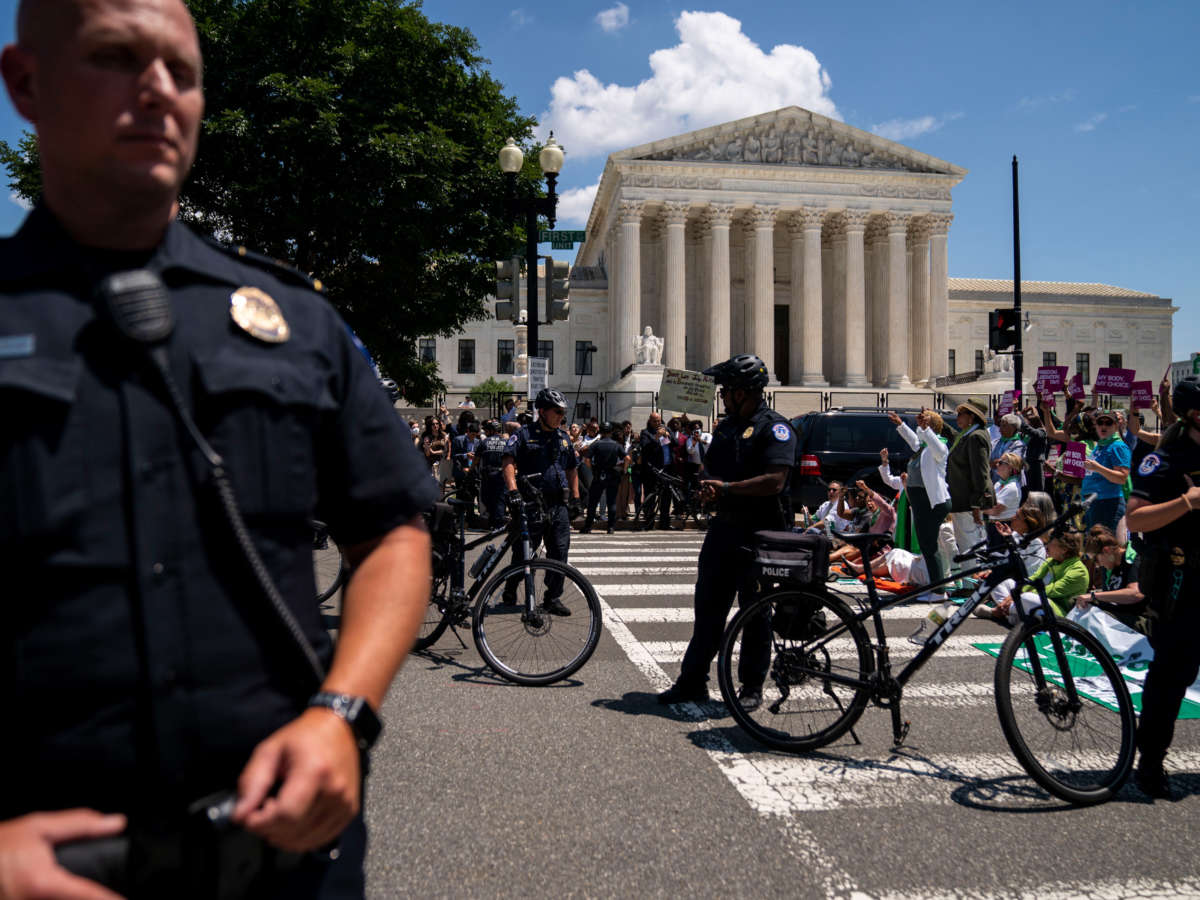A new poll shows that Americans are overwhelmingly dissatisfied with how the Supreme Court currently functions, with a large swath of respondents changing their views on the institution over the past year.
The Marquette Law School poll, conducted on July 5-12, found that most Americans do not approve of how the Supreme Court has functioned over the past year. Just 38 percent of respondents said that they approve of the Court’s recent actions, while 61 percent said that they disapprove.
That approval rating is a drastic shift from the American public’s opinion on the Court a year ago. Indeed, in July 2021, those numbers were reversed — 60 percent of respondents approved of the Court while 39 percent disapproved, according to a Marquette Law School poll at the time.
Confidence in the Court is also remarkably low. Just 28 percent of respondents said that they have a “great deal” or “quite a lot” of confidence in the Court, while the same rate, 28 percent, said that they only have “some” confidence in the institution. A plurality of respondents, 44 percent, said that they have “very little” or no confidence in the Court.
The shift in public opinion is likely due to the Court’s myriad right-wing rulings this past term, most notably their decision to overturn Roe v. Wade, upending nearly five decades of abortion rights precedent. Among those who had a high degree of knowledge about the case, only 36 percent said that they support the outcome, while 64 percent said that they oppose the ruling, the poll found.
The poll also showed that 61 percent of Americans believe that the Court is motivated by politics, while just 39 percent say that the Court is driven by a desire to adhere to the rule of law.
Americans are split on whether the size of the High Court should be increased, a measure that many progressives have called for in light of Republicans’ underhanded maneuvering during the Trump administration to add justices to the Court in order to obtain a 6-3 majority. A commission established by President Joe Biden to examine expansion was split on the idea, though proponents of the measure have noted that doing so could help restore the Court’s legitimacy.
Forty nine percent of the poll’s respondents said that they back the idea of increasing the Court’s size, while 51 percent said that they are opposed to such a measure — a virtual tie, given the poll’s 4-point margin of error.
The Marquette Law School poll did not ask respondents how they felt about imposing limits on the amount of time that Supreme Court justices are allowed to serve, though it has asked that question in the past. Other recent polling data, however, suggests that Americans would largely embrace the reform measure. A Politico/Morning Consult poll conducted in late June, for example, showed that 62 percent of Americans would back term limits for justices. Only 23 percent of respondents said that they wouldn’t support the idea.


